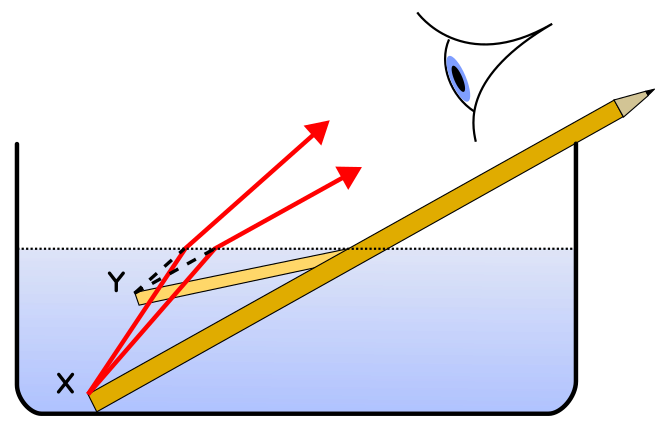Chapter 4 – Foundations for a Moral Code:
Rationalism and Its Flaws
In Western philosophy, rationalism is the main alternative to empiricism for describing
the human mind and for modeling what knowing is. It is the way of Plato in
Classical Greek times and of Descartes in the Enlightenment. Rationalism claims
that the human mind can build a system for understanding itself and for how it
knows its universe only if that system is first of all grounded in the human
mind by itself, before any sensory experiences or memories of them enter
the thinking system.

(credit: Wikimedia Commons)
Descartes, for example, points out that our senses give
us information that can easily be faulty. As was noted above, the stick in the
pond looks bent at the water line, but if we remove it, we see it is straight.
The hand on the pocket warmer and the hand in the snow can both be immersed shortly
after in tepid tap water; to one hand, the tap water is cold and to the other,
it is warm. And these are the simple examples. Life contains many much more
difficult ones. Therefore, the rationalists say, if we want to think about
thinking in rigorously logical ways, we must try to construct a system for
modelling human thinking by beginning from some concepts that are built into
the mind itself before any unreliable sense data or memories of sense data even
enter the picture.
Plato says we come into the world at birth already
dimly knowing some perfect “forms” that we then use to organize our thoughts.
He drew the conclusion that these useful forms, which enable us to make sense
of our world, are imperfect copies of the perfect forms that exist in a perfect
dimension of pure thought, before birth, beyond matter, space, and time—a
dimension of pure ideas. The material world and the things in it are only poor
copies of that other world of pure forms ultimately derived from the pure Good.
The whole point of our existence, for Plato, is to discipline the mind by study
until we learn to more clearly recall, understand, and live by the perfect
forms—perfect tools, perfect cooking, perfect medicine, perfect beauty, perfect
justice, perfect tools, perfect animals, and many others.
Descartes formulated a similar system of thought that
begins from the truth the mind finds inside itself when it carefully and
quietly contemplates just itself. During this quiet and totally concentrated
self-contemplation, the thing that is most deeply you, namely your mind,
realizes that whatever else you may be mistaken about, you can’t be mistaken
about the fact that you exist; you must
exist in some way in some dimension in order for you to be thinking about
whether you exist. For Descartes, this was a starting point that enabled him to
build a whole system of thinking and knowing that sets up two realms: a realm
of things the mind deals with through the physical body attached to it, and
another realm the mind deals with by pure thinking, a realm built on the “clear
and distinct ideas” (Descartes’s words) that the mind knows before it ever
takes in the impressions coming from the physical senses.
These
two rationalists have had millions of followers—in Descartes’s case for four
hundred years and in Plato’s case for well over two thousand. They have
attacked empiricism for as long as it has been around (since the 1700s, or in a
simpler form, some argue, since the time of Aristotle, who was Plato’s pupil,
but who disagreed diametrically with Plato on several matters).
The debate between the rationalists and the
empiricists has not let up, even in our time. But in our quest to find a
universal moral code, we will find that we must discard rationalism just as we
did empiricism; rationalism contains a flaw worse than any of empiricism’s
flaws.
No comments:
Post a Comment
What are your thoughts now? Comment and I will reply. I promise.